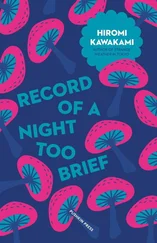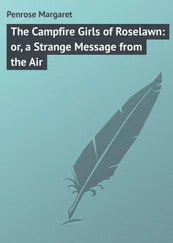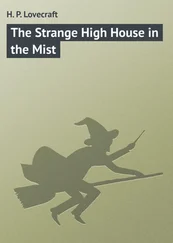I counted stars as I walked. I counted them, looking up at the sky and trailing behind Sensei. When I reached eight, Sensei said suddenly, “ Plum blossoms, fresh shoots, prepared at Mariko’s inn, with grated yam soup. ”
“What is that?” I asked.
Sensei shook his head and lamented, “You don’t know your Basho either?”
“That was Basho?” I asked again.
“Yes, it’s Basho. I taught you his poetry, a long time ago,” he said. I had no recollection of learning that haiku. Sensei started walking faster.
“Sensei, you’re walking too fast,” I said to his back, but he didn’t respond. I deliberately repeated the strange words with a hint of irritation: “Grated yam soup prepared at Mariko’s inn.”
Sensei kept walking for a moment. Then he stopped, and without turning around, he said, “We should make grated yam soup together sometime. Basho’s poem is a spring haiku, but the yams are delicious right now. I can use the grater and, Tsukiko, you can grind them with a mortar and pestle, if you don’t mind.” His voice was the same as always, though he still stood in front of me, without turning to face me.
I continued to count stars, following along behind Sensei. I was up to about fifteen when we got to the place where we went our separate ways.
“Goodbye,” I waved.
Sensei waved back and said, “Goodbye.”
I watched his back as he left, and then I headed to my own place. By the time I got home, I had counted twenty-two stars, including even the tiny little ones.
WHAT ON EARTH was I doing, wandering around a place like this?
It was Sensei’s fault—after all, he was the one who first starting talking about mushrooms.
We had been sitting at the counter in the bar, the air that evening filled with autumn briskness, when Sensei, his posture perfect as always, said cheerfully, “I love mushrooms.”
“ Matsutake mushrooms?” I asked, but he shook his head.
“ Matsutake are fine, of course, but…”
“Yes?”
“Assuming that ‘mushrooms’ refers to matsutake is as simplistic as deciding that ‘baseball’ means the Giants.”
“But don’t you love the Giants, Sensei?”
“I do, but I’m perfectly aware that, objectively, baseball is not only about the Giants.”
The quarrel that Sensei and I had over the Giants was still quite recent, and both of us were now extremely cautious when it came to baseball.
“There are many varieties of mushrooms.”
“I see.”
“For instance, you can pick murasaki shimeji mushrooms and roast them on the spot. Drizzled with soy sauce—my goodness, so delicious!”
“Yes.”
“And iguchi mushrooms are quite savory as well.”
“I see.”
As our conversation went on, the owner of the bar had poked his head out from his side of the counter.
“You know a lot about mushrooms, sir!”
Sensei gave a slight nod. “Oh, not much at all,” he said, although his demeanor seemed to suggest that he knew quite a bit.
“I always go mushroom hunting this time of year,” the owner said, craning his neck. He gestured toward Sensei and me with his nose, like a mama bird feeding her chicks.
“I see,” Sensei replied in the same vague way that I often did.
“Well then, sir, since you like them so much, would you like to come along with me on this year’s mushroom hunt?”
Sensei and I exchanged glances. Despite the fact that we came to this bar almost every other night, the owner had never once treated us like regulars or made a point of making friendly conversation. Rather, it was the kind of place where everyone was treated like a new customer. And now, suddenly, the owner had invited us “to come along” with him.
“Where do you do this mushroom hunting?” Sensei asked.
The owner craned his neck even further. “Around Tochigi,” he answered. Sensei and I exchanged glances once again. The owner awaited our reply, his neck still outstretched. At the same moment that I wondered aloud, What do you think…? Sensei responded, Let’s go. Somehow, just like that, it was decided that we would go mushroom hunting in Tochigi via the owner’s car.
• • •
I KNEW ABSOLUTELY nothing about cars. Neither did Sensei. The bar owner’s car was white and boxy, unlike the sort of streamlined cars that you often saw these days in the city. This car was squarish and outdated, and somewhat austere, the kind that was common more than ten years ago.
The plan was to meet up outside the bar at six in the morning on Sunday. So I set my alarm for 5:30 am and, without even washing my face, grabbed the musty old rucksack that I had dug out from the back of my closet the night before as I left my apartment. The sound of the key as I locked the front door echoed unpleasantly in the morning air. I couldn’t stop myself from yawning repeatedly as I headed for the bar.
Sensei had already arrived. He stood there perfectly straight, his briefcase in hand, as always. The trunk of the car was open wide, and the bar owner’s upper body was thrust inside.
“Is that equipment for hunting mushrooms?” Sensei asked.
“No,” the owner replied, without changing position. “I’m bringing this stuff to my cousin’s place in Tochigi.” His voice reverberated from within the trunk.
The things he was bringing to his cousin’s place in Tochigi consisted of several paper bags and one long, rectangular package. Sensei and I both peered over the owner’s shoulder. A crow cried from atop a utility pole. Caw, caw, caw, caw , it called, sounding just like a crow. Its voice seemed a bit more carefree than when I heard crows during the daytime.
“These are Soka senbei and Asakusa nori ,” the owner said, pointing at the paper bags.
“I see,” Sensei and I replied in unison.
“And this is saké.” He pointed at the long package.
“Yes,” Sensei said, his briefcase hanging straight down. I said nothing.
“My cousin, he really likes Sawanoi saké.”
“As do I,” Sensei said.
“It’s great. But my bar serves Tochigi saké.”
The owner seemed much more relaxed than when he was at the bar. He looked at least ten years younger. Hop in, he said, opening the rear door and leaning halfway into the driver’s seat to start the car. Once the engine caught, he extricated himself from the front seat and went to close the trunk. He made sure that Sensei and I were settled into the backseat and walked a full circle around the car, then stood there smoking a cigarette before getting in to the driver’s seat. He yanked on his seatbelt and slowly stepped on the accelerator.
“Thank you so much for inviting us today,” Sensei called out formally from the backseat.
The owner swiveled around, beaming at us. “Let’s take it easy.” He had a nice smile. But he still had his foot on the gas pedal and the car continued to inch forward while he was completely turned around.
“Um, ahead of you,” I murmured, but the owner merely craned his neck in my direction. “Huh?” he asked. Still facing us, he made no effort to glance in front of him. All the while the car continued to glide forward.
Sensei cautioned, “You might want to look ahead,” while I cried out at the same time, “Up ahead! Up ahead!” A utility pole was close at hand.
“Oh?” The owner spun back around and turned the steering wheel just in time to avoid the pole. Sensei and I both gave a deep sigh.
“No worries,” the owner said as he sped up. What on earth was I doing here in a stranger’s car? And this early in the morning? I still had no idea what mushroom hunting entailed, and I felt as if I were still drinking. The car sped along faster, despite my confusion.
Читать дальше
![Хироми Каваками Strange Weather in Tokyo [= The Briefcase] обложка книги](/books/29150/hiromi-kavakami-strange-weather-in-tokyo-the-br-cover.webp)










